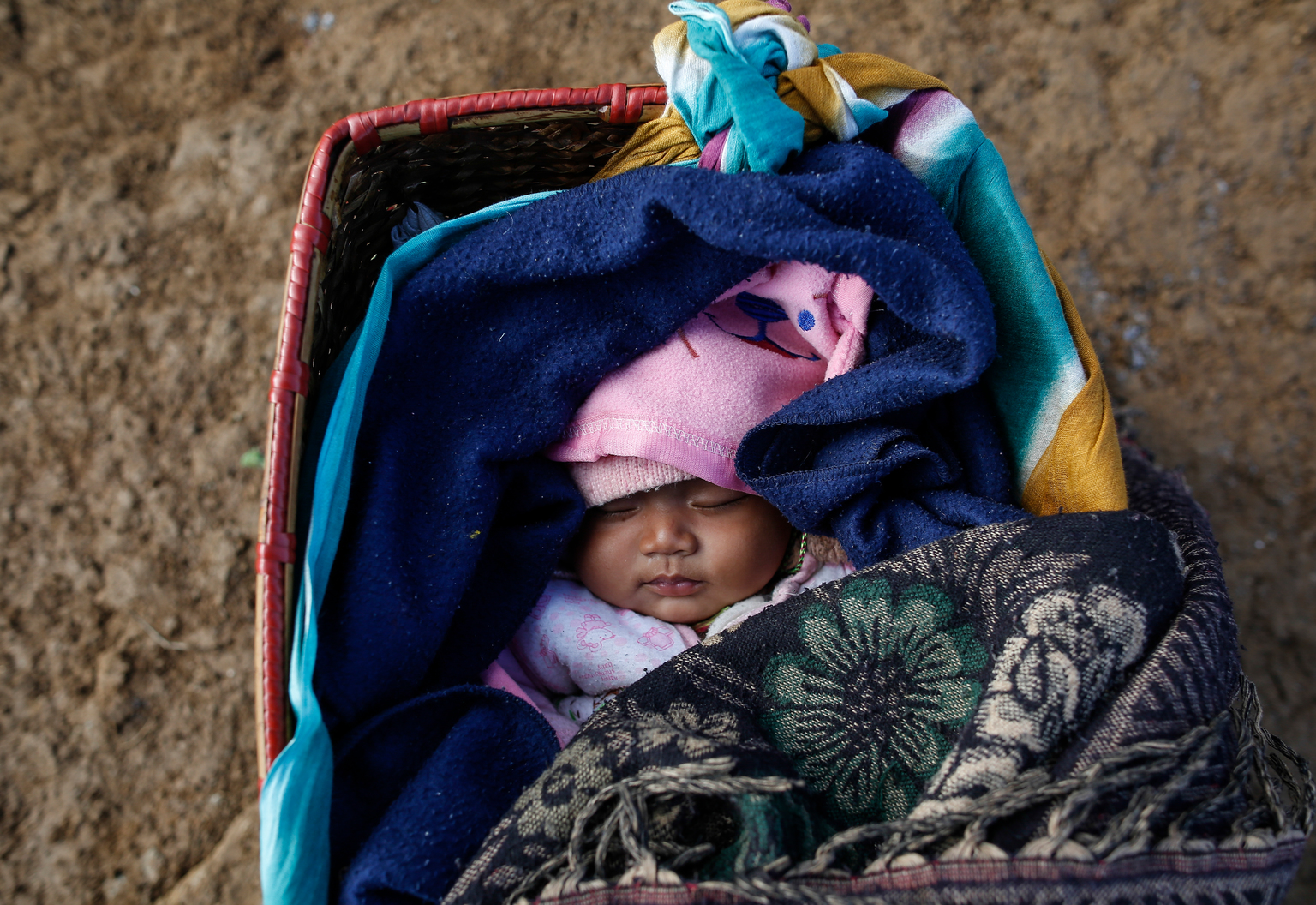A clean start to life
2017-06-06
© UNICEF/Shrestha
Grandmother Chinmaya Shrestha warms the legs of her three day-old grandson at the UNICEF-supported Primary health center of Gorkha District, Nepal.
Imagine watching your doctor wash their hands with dirty water. Imagine giving birth to a child in a hospital with no running water. Or having no toilet to use when you are in labor. Imagine delivery a baby, without having soap or water to wash your hands.
This is a reality for millions of people around the world, where health care is practiced without the most critical foundations of disease control and infection prevention: safe water, sanitation, and good hygiene.

© UNICEF/Shrestha
A four-month-old boy born to Nepalese mother Sundari Gurung, 22, at her temporary shelter in Gupsi Pakha, in Laprak, in Gorkha district, Nepal. Both Sundari and her father-in-law lost their homes during April 2015 earthquake and have been living in Earthquake Camp in Gupsipakh, Nepal.
Across the world, 38 percent of health care facilities do not have any water source, 19 percent do not have basic toilets, and 35 percent do not have water and soap for handwashing.
Without these basic needs, diseases can spread and infections can occur. Many expecting mothers are at risk, as they deliver their child in a hospital or health care facility with no clean water, no toilets or soap for the doctors to wash their hands.
Midwife Bandana Das of India has been working to help ing children into the world for over 30 years in places with no sanitation or hygiene, and where the water has been so dirty it is unusable. “I have seen mothers who are discharged from the health facility, coming back to the same facility with severe infections,” she recalls.
When women give birth, access to clean water, adequate sanitation, and good hygiene practices are crucial to the survival of the baby. Without hygiene, infections such as sepsis and tetanus can occur during and shortly after the delivery.
Around 30-40% of infections that result in sepsis-related deaths are transmitted at the time of birth. It is not just the baby that is at risk: two out of 45 maternal deaths occur within 24 hours of birth related to infection and/or severe bleeding.
“Even a drop of blood or saliva is very dangerous inside a labor room. Without water, nothing can be done. Without washing our hands, we cannot touch a mother or a baby,” said Bandana.
Simple acts, like hand-washing with soap, sterile equipment and the use of antiseptics can be the difference between life and death. One of the cheapest and most effective ways to improve health care globally is to provide safe water, sanitation, and hygiene in health care facilities.









